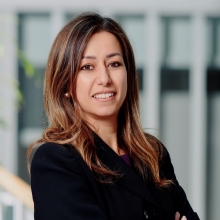While economic and social indicators in many countries in the Middle East and North Africa (MENA) have improved, the region’s blue natural assets — clean air, healthy seas, and coastlines — have degraded nearly everywhere. The human and economic price of this deterioration of blue assets is immense, costing more than 3% of GDP per year. As MENA countries recover from COVID-19, there is an opportunity to shift to a greener, more resilient, and inclusive development pathway that reverses natural resource degradation and environmental pollution – plus builds resilience to climate change.
This event marks the launch of a flagship World Bank report, "Blue Skies, Blue Seas: Air Pollution, Marine Plastics and Coastal Erosion in the Middle East and North Africa." After a presentation of the report, you will hear from leading policymakers and the private sector about their vision for a healthier future.







